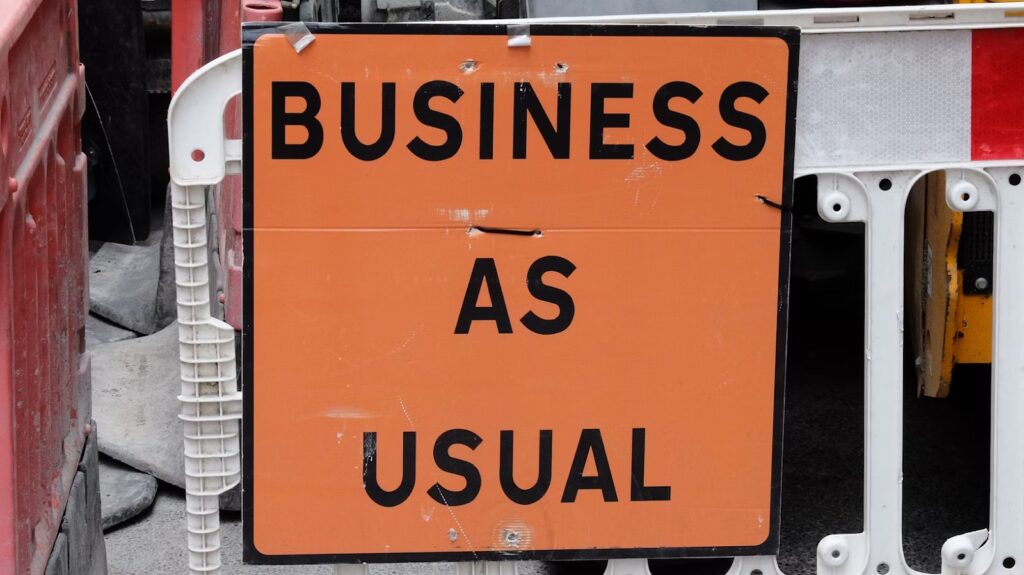Forgetting insurance can unravel everything you’ve built. It doesn’t matter if you’re running a freelance empire from your kitchen or managing a startup with a dozen caffeinated developers. When something breaks, floods, burns, crashes, or sues, you’ll wish you’d thought of insurance sooner.
Read on for four of our top tips for deciding what your insurance needs are.
Tip One: Think About What You’d Cry Over First
If a fire wiped out your laptop or studio, would you still have a business? If a client sued you because their launch failed, could you afford a lawyer? If your delivery van was stolen while parked outside an In-N-Out Burger, would you be ruined or just annoyed?
Start with the things you depend on. Some people need buildings; others need tools. Some rely on a name they built over the years, while others need their back not to give out again. Think about what would bring your business to a halt. That’s what needs protection first.
This is why asset-based insurance exists. Commercial property insurance protects the things you can see, such as computers, stock, and workstations. If you own it and you can drop it on your foot, there’s a policy for it.
Tip Two: Cover Your People, Even If You Only Have One
If you’ve hired ten staff or just paid your sister to help with invoices, you need to think about people. People get hurt. People trip. People mess up. And when that happens on your watch, it becomes your mess to clean.
Workers’ compensation insurance isn’t a luxury. It’s the legal minimum in most places, and for good reason. If someone gets injured while working, this covers medical bills and lost income so your business doesn’t end up bankrupt because someone slipped on a wet floor.
The same logic applies even if you’ve hired freelancers or part-timers. It’s easy to assume they’re not your problem because they invoice you. But if something happens while they’re on your premises or following your directions, the law might not agree with you.
You can use a workers’ compensation insurance rate calculator to see how much it would cost your business.
Tip Three: Don’t Skip Liability, No Matter What You Sell
Maybe you don’t make physical products. Or perhaps you’re a consultant, coach, or creative. That doesn’t mean you’re safe. You’re still giving advice and making decisions, and you’re still responsible if that advice goes wrong.
That’s where liability insurance is essential. General liability covers you if someone is injured or their property is damaged, even if it’s not partly your fault. Professional liability (sometimes called errors and omissions insurance) protects you when your advice leads to a financial loss.
If you run a bakery, general liability applies when a customer chips their tooth on a stone in your sourdough (why is sourdough like a brick?!). If you run a marketing agency, professional liability helps if a client sues you because your campaign flopped and cost them thousands.
You don’t need to sell dangerous things to need this. You only need to interact with people, clients, or other humans in any way.
Tip Four: Don’t Buy Everything; Buy What You’ll Actually Use
It’s easy to get overwhelmed by the endless list of policies insurers throw at you. Cyber insurance, product liability, workers’ compensation, and directors and officers cover. The list could go on. You need to find what actually fits your business.
If you run an online-only service and you’ve got customer data, cyber insurance might save your skin if you get hacked. If you create physical products that could injure someone, product liability is essential. If you’ve got one person the whole business depends on—like a founder—key person insurance can keep things running if something happens to them. There are many ‘ifs’ we could continue with.
It’s about being honest with how your business works. The insurance you needed two years ago might not be what you need now.
It’s not glamorous. It won’t win awards. But having the right insurance could mean the difference between bouncing back and closing shop. What insurance do you think your business needs in 2025?

